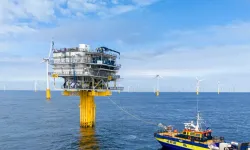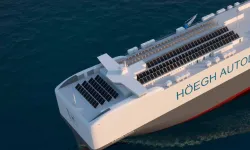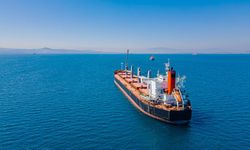This expansion aims to better serve Germany's shipping and energy sectors as part of the company's commitment to providing top-notch services.
The Port of Stade, the third-largest port in Niedersachsen by cargo handling volume, offers direct access to the North Sea. Positioned between Hamburg and Cuxhaven, it is an ideal location for GAC Germany to cater to the region's increasing demands.
Key features of the port include non-tidal access for ocean-going vessels, making it a preferred choice for dry bulk, barge, and general cargo vessels. In 2022, the port handled 1,000 port calls and managed 5.6 million tonnes of cargo.
The Port of Stade is also poised to play a crucial role in Germany's efforts to boost LNG import capacity. It will support the Hanseatic Energy Hub, a flexible LNG terminal currently under development. GAC Germany's new office in Stade will strategically position the company to serve existing and future clients in dry bulk, liquid bulk, and gas carrier segments, offering a range of ship agency and logistics services.
Ronald Kleinitzke, a shipping industry veteran with over 20 years of experience, will lead GAC Germany's Stade office, bringing extensive knowledge of the local region and surrounding ports.
Thies Holm, General Manager of GAC Germany, emphasizes the strategic importance of the Stade presence, especially with the rapid growth of LNG infrastructure in Germany. The company aims to extend industry-leading ship agency services as Germany's LNG capacity expands.
Germany has made significant progress in enhancing its LNG capacity in 2023 to achieve greater energy independence. The Hanseatic Energy Hub, a major future LNG terminal with an estimated cost of €1 billion (US$1.1 billion), is set to commence operations in 2027. This facility will secure 15% of Germany's existing LNG demand and support its green energy transition, including the development of hydrogen production.
Strategically located at the Port of Stade, the Hanseatic Energy Hub will include a storage facility, a truck-loading facility, and a jetty for bunkering vessels. Until the fixed terminals are operational, Germany is utilizing three floating storage and regasification terminals (FSRUs) at the ports of Wilhelmshaven, Brunsbuettel, and Lubmin to handle incoming LNG supplies.






